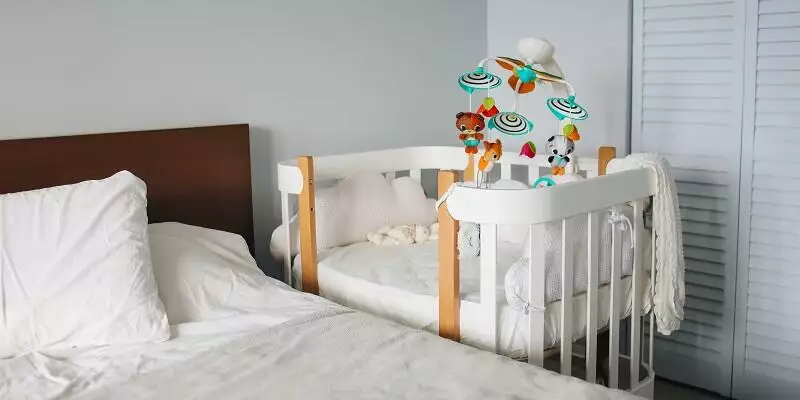The truth is, babies don’t actually need all that much. If you think about the work of a baby — eat, sleep, poop, repeat — the items required to accomplish those tasks are pretty minimal. So, where does all the excess stuff that fills the homes of new parents come from? Most of the items we acquire in the first year of parenthood are designed for our own comfort, convenience, and, well – SLEEP! Which, by the way, is totally fine! Postpartum healing and survival are key, but the reality of all the “stuff” sure sneaks up on you. It doesn’t help that baby is always changing, as are the items he or she is actively using, fitting into, and enjoying.
So how do you avoid what seems to be the inevitable cry for help that hits parents around the one year mark? Here are a few practical tips to help keep baby clutter to a minimum and keep your home feeling like adults live there, too.
Phase 1: Registering and/or shopping for baby
- Avoid crowdsourced lists – these lists breed overbuying. If you use multiple moms’ lists, you will end up so deep in products that you won’t even know what to do with them.
- Invest in multiphase products – invest in the items you will use long term like furniture, mattress, and stroller. You can keep other items, like toys, to a minimum — baby will most likely prefer to play with your pots and pans anyway.
- Don’t overcommit – registering or baby and completing your initial shopping shouldn’t result in multiples of anything. Your goal should be to acquire a sampling of things and double down once you know what you like and what works for your baby. Trying to be “prepared” with three of every type of swaddle, blanket, and all the different seats will only make you well-stocked in the clutter category later on.
- Don’t purchase items for problems you and your baby don’t have – this links back to the previously mentioned crowdsourcing point. If a mama friend’s favorite baby item was something that helped her comfortably breastfeed, but you don’t know if you will or will not have that same challenge, don’t purchase the item. Many mamas must-have items are products that solve a problem for them. Since you don’t yet know what your challenges will be, jumping the gun on these items will inevitably leave you with a closet full of things you never used. Only buy for your personal situation.
- Closely consider your space before purchasing – dimensions are listed on products for a reason. If space is a factor for you, then paying close attention to the size of things is critical. Spoiler alert – some baby items are rather large. If you do decide you need something sizable, consider looking for the travel version of that same item. Most toys and many other baby items are offered in travel sizes, which are either significantly smaller or have the capability to fold-and-go. For items that will be used briefly before being outgrown, you can also consider renting instead of purchasing.
Phase 2: When the items begin to overflow
- Donate – there are many causes that accept baby gear and even some brands with programs to help parents pass along items in exchange for a discount. Ergobaby’s Everlove program is a great example, and they support Baby2Baby, a national organization that accepts baby products.
- Sell – Mercari, Facebook Marketplace, and eBay are all great ways to offload those extra items you no longer need. Just be sure they are in decent condition (no one wants those old bottle nipples) and that you don’t want it for a future child.
- Hand-me-down – hand-me-downs are so appreciated! Tons of expectant mamas would love your gently-used items. Some sites, like Babylist, even allow expectant mamas to register for hand-me-downs!
- Organize – utilize Montessori-inspired toy rotations to keep fewer things out in your play spaces. A bonus is that having fewer toys available at any given time helps children focus on skill development. You can also utilize decorative baskets and bins to corral items. This is a simple and low-maintenance way to encourage your child to help with clean up, too!
- Recycle – many feeding companies (think plates, bowls, and cups) are becoming more responsible for their environmental impact. Accordingly, they are increasingly using materials that can be recycled. In some areas, you can even recycle your baby’s used bathtub curbside if your provider accepts rigid plastic.
“I bought way too much stuff as a first-time mom and am really trying to avoid it the second time around” is something I hear endlessly from parents. Until we stop passing along these “must-have” lists to our friends and start accumulating baby gear more thoughtfully, we will only keep perpetuating the dreaded overflow of baby stuff everywhere. The best thing an expectant mama can do is think about her personal needs and spaces, right here, right now, and buy accordingly!

